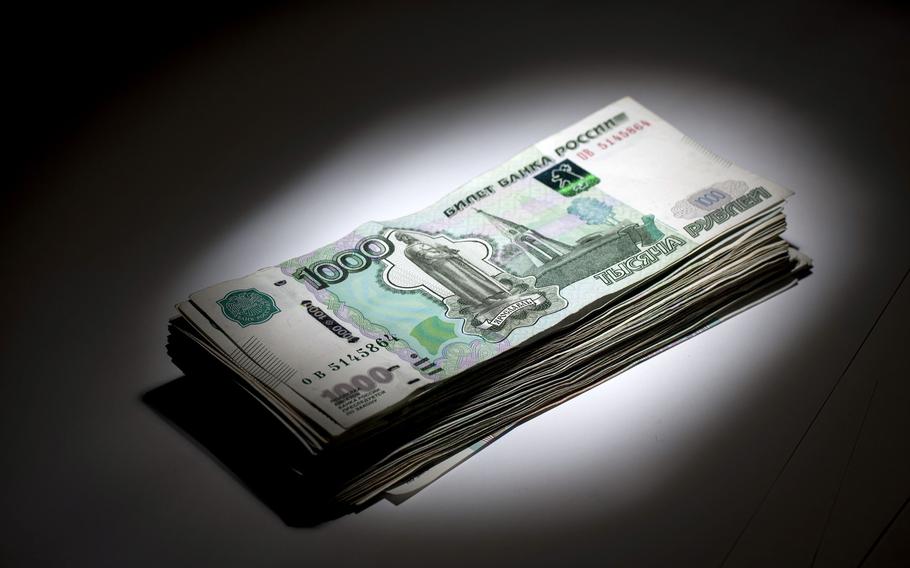
A stack of Russian 1000 ruble currency banknotes. (Simon Dawson/Bloomberg)
Russia said it would no longer disclose monthly figures breaking down how much the government spent on various budget items including defense, even as it released data showing the ruble’s surge erased the benefits of higher crude prices for revenue.
The Finance Ministry on Tuesday cited the need to “minimize the risk of the imposition of additional sanctions” for excluding expenditure details. The government and the central bank have suspended publication of a range of financial and economic data since the U.S. and its allies hit the country with sweeping sanctions in the wake of the Kremlin’s Feb. 24 invasion of Ukraine.
The latest budget report still covered the other half of the ledger, indicating that tax revenues from oil and gas exports dropped by more than half in May from the previous month. A stronger ruble cuts into the budget because the government gets much of its revenue from energy taxes denominated in foreign currency but spends in rubles.
Bloomberg calculations based on data provided by the ministry showed income from oil and gas fell last month to 871 billion rubles ($14.9 billion) from 1.81 trillion rubles in April, which was the highest in at least a decade. Income from other taxes and excise duties rose 7.5% from the previous month to 1.14 trillion rubles, according to Bloomberg calculations.
The government reported a budget surplus of 1.5 trillion rubles in the first five months of the year, according to the ministry.
“Non-energy revenues were effectively at the planned level, but since these are nominal figures, the effect of higher inflation compensated for the drop in economic activity,” said Sofya Donets, economist at Renaissance Capital.
Despite last month’s drop, oil-and-gas earnings through May were still higher than planned, she said, but are likely to decline later in the year as falling export volumes and ruble strength hit the result. “We’re sticking to our forecast that for the year we will wind up with a deficit around zero,” Donets said.
The world’s largest energy exporter, Russia has benefited from high prices for oil and gas, boosted in part by the impact of the war in Ukraine.
Urals, Russia’s blend of crude oil, averaged $78.81 a barrel in May, up almost 12% from the previous month, even as some cargoes were sold at steep discounts to Asian consumers, in particular China and India. Traditional customers turned away from Russian crude amid official restrictions and self-sanctioning.
At the same time, the ruble gained almost 15% against the dollar in May as capital controls limited demand for foreign currency amid a flood of export revenues. As a result, the budget wasn’t able to reap the benefits of higher dollar crude prices in ruble terms.